35 Self-hosted Low-code Solutions for 2025 (Updated)
Table of Content
What is a low-code and no-code platform
Low-code and no-code platforms are development environments that enable the creation of software applications with minimal or no coding. They use visual interfaces with drag-and-drop features to allow developers, and even non-developers, to design and build applications.
How they benefit developers, citizen developers, startups, and enterprises
Low-code and no-code platforms are beneficial for a variety of users. For developers, these platforms can reduce the time and complexity of coding, allowing them to deliver applications faster.
Citizen developers, who may not have formal coding training, can use these platforms to create applications without needing to write code. Startups and enterprises can benefit from these platforms by reducing the dependence on skilled developers, thus saving costs. They can also speed up the application development process, enabling faster time-to-market.
How these platforms can boost productivity and save costs for companies
By enabling faster application development, low-code and no-code platforms can significantly boost productivity. They eliminate the need for long coding processes, thus reducing the workload of developers and allowing them to focus on other tasks.
Additionally, by reducing the dependence on skilled developers, these platforms can save costs for companies. The ability to create applications in-house without hiring external developers or agencies can result in significant cost savings.
Benefits of having self-hosted low-code and no-code platforms
Self-hosted low-code and no-code platforms offer several benefits. They provide greater control over the data and the application environment, ensuring higher data security.
They also allow for customization to suit the specific needs of the organization. Furthermore, they can be more cost-effective in the long run as they do not require ongoing subscription fees.
Self-hosting apps also ensures that the platform can be used offline, making it more reliable in areas with unstable internet connections.
In the list below, you will find top low-code and no-code self-hosted platforms suitable for various purposes.
1. FlowFuse
FlowFuse is a revolutionary tool designed to enhance the efficiency and productivity of Node-RED developers. It aims to enable a more reliable, secure, and collaborative environment for application development and delivery.
Node-RED is a flow-based, low-code development tool. It was initially developed by IBM to wire together hardware devices, APIs, and online services as part of the Internet of Things (IoT). Node-RED provides a web browser-based flow editor, which can be used to create JavaScript functions. This makes it an exceptional tool for visual programming, enabling developers to see the flow of data and how components interconnect. Node-RED's innovative design allows for a more intuitive and visual approach to programming, making it accessible to both novice and experienced developers.
The primary strength of FlowFuse lies in its low-code development environment, which is ideal for integrating hardware devices, APIs, and online services. This intuitive approach significantly simplifies the application development process.
One of the key features of FlowFuse is its facilitation of team collaboration. The platform allows multiple developers to concurrently work on a single instance, thereby promoting teamwork and speeding up the development process.
FlowFuse also excels in managing remote deployments. Many organizations deploy Node-RED instances to remote servers or edge devices, and FlowFuse automates this process. It achieves this by creating snapshots on Node-RED instances that can be easily deployed to multiple remote targets.
2. Flowise
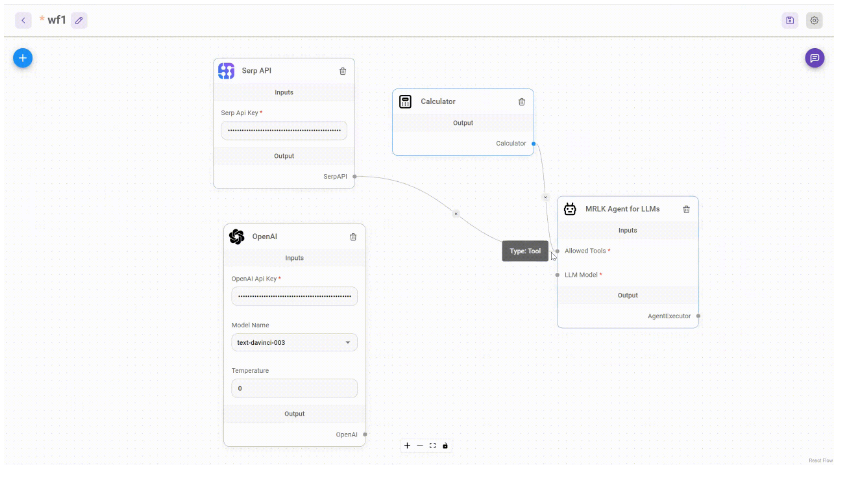
Flowise - Build LLM Apps Easily is a low-code, self-hosted platform designed for efficiency and convenience. It features a user-friendly drag & drop UI that allows users to build customized LLM flows with ease. This innovative tool simplifies the process of creating LLM apps by providing an intuitive, visual approach to programming.
As a self-hosted platform, Flowise offers users full control over their development environment. Furthermore, it can be easily installed using Docker, facilitating a straightforward and hassle-free setup process. Whether you're a novice or an experienced developer, Flowise is designed to enhance your productivity and streamline your development workflow.
3. Pipedream

Pipedream is a versatile integration platform designed for developers. It offers a free, hosted platform for building event-driven automations and connecting apps. With over 1,000 fully-integrated applications, developers can swiftly perform tasks such as sending messages to Slack or adding a new row to Google Sheets.
Furthermore, Pipedream supports custom code in multiple languages (Node.js, Python, Golang, or Bash) for more complex operations. Its low-code approach allows for a balance between pre-built components for common tasks and custom code for specific needs.
Pipedream's features include Workflows for running automations, Event Sources that trigger workflows, Actions for common operations, and Destinations for asynchronous event delivery.
This platform is excellent for startups and enterprises alike, greatly simplifying the process of building internal tools and integrating several solutions into one.
4. ILLA Builder
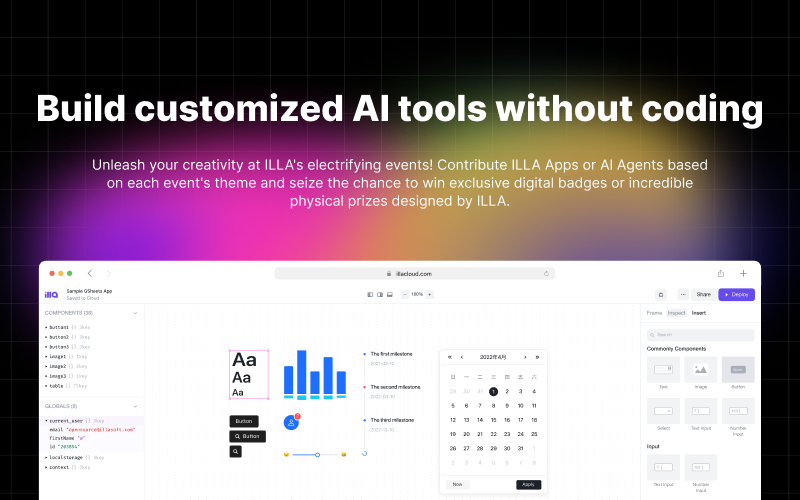
ILLA is an excellent open-source low-code platform designed primarily for developers. Its core function is to simplify the process of building internal tools such as dashboards, CRUD apps, admin panels, CRMs, and CMSs. It supports a wide range of databases and APIs, including PostgreSQL, MySQL, Supabase, GraphQL, MongoDB, MSSQL, and Rest API.
One of ILLA's key features is its ability to automate workflows, either on a schedule or via a webhook. It offers real-time collaboration, enabling teams to build tools together in real time. It also supports automation, allowing for quick and efficient connections between different components.
ILLA's self-hosting capability, with support for Docker and k8s, offers developers full control over their environment. It also includes page support, which forms the foundation for creating content-rich and user-friendly tools.
With its design powered by ILLA, the platform ensures that no idea is too ambitious to be realized. ILLA is an ideal solution for startups and enterprises alike, with its versatility in building AI-based and IoT apps, making it a game-changer in the development space.
5. Rowy
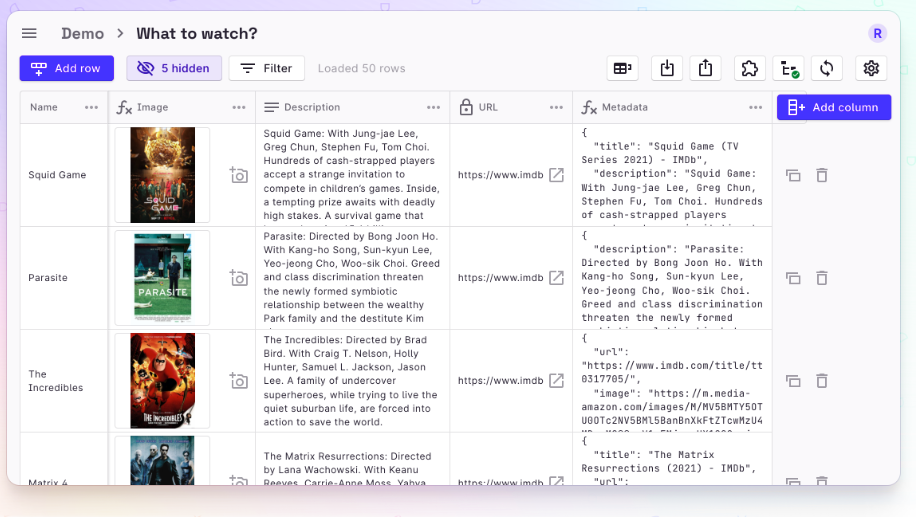
Rowy is an open-source, low-code collaboration service similar to Airtable, allowing teams to manage data-oriented projects. It can be installed on Google Cloud Platform quickly and comes with numerous templates for various tasks and projects. It supports over 30 data fields and requires no low-level configuration, making it user-friendly for developers.
6. Frank!Framework
The Frank!Framework stands as an intuitively designed, stateless integration framework, adept at facilitating the seamless modification and exchange of transactional messages between diverse systems.
It's superiority is rooted in its unparalleled configurability achieved through XML configurations. This adaptability grants each Frank!Application the power to house multiple configurations, with each configuration possessing the capacity to have multiple end-to-end connections, commonly referred to as 'adapters'.
For peak performance and customization, these configurations can be conditionally or individually (re)loaded at will. Adding to its prowess, the Frank!Framework offers comprehensive management and monitoring capabilities accessible via a web interface or REST API.
Exhibiting its platform independence, it's written in Java and as such, can operate on virtually any system equipped with Java support, ensuring extensive applicability. It's no doubt that this feature-packed framework is the ultimate solution for flawless system integration.
7. n8n
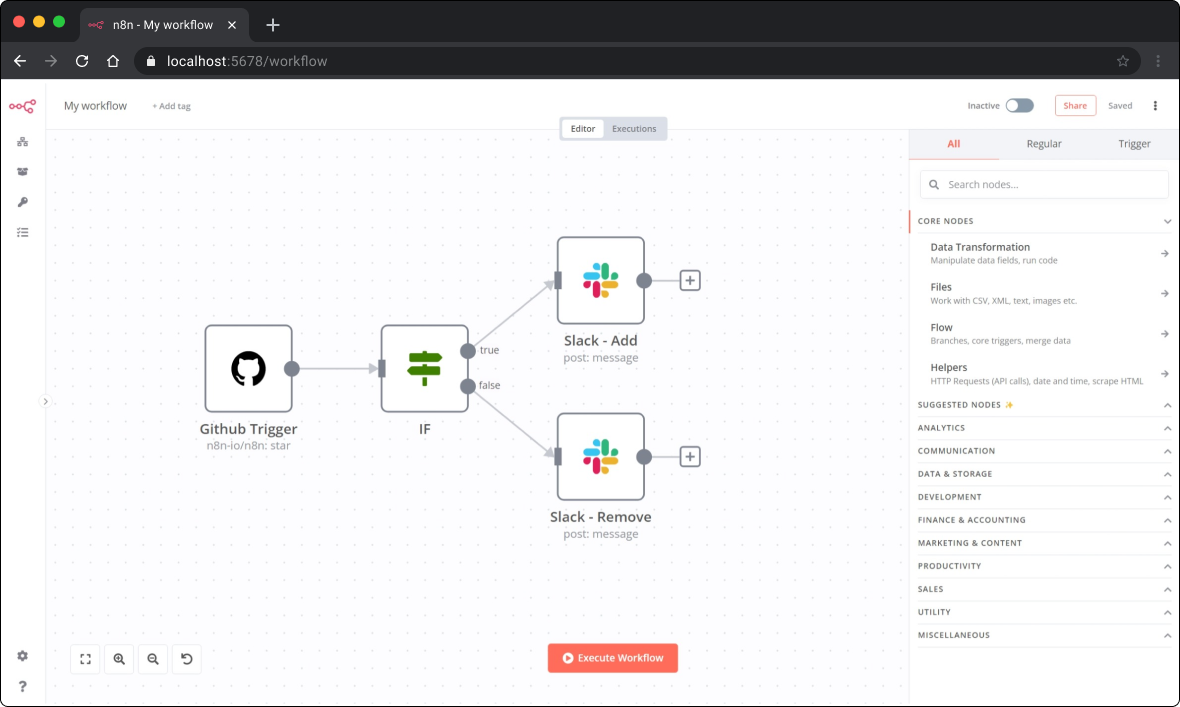
n8n, a versatile workflow automation tool, operates on a fair-code model, ensuring source code visibility. Its self-hosting capability enhances data security and customizability. Its node-based approach allows interconnection of different apps and services for efficient task automation.
Distributed under Sustainable Use and n8n Enterprise Licenses, it underscores sustainable software development. Easy to install on any server, n8n is an effective tool for process streamlining and productivity enhancement.
8. Teable
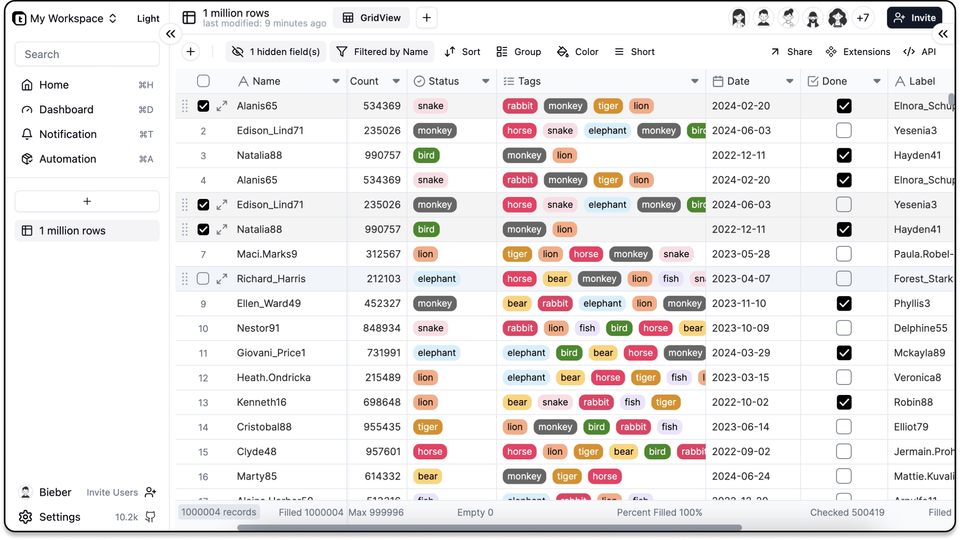
Teable, a fusion of Postgres and Airtable, is a No-code database that revolutionizes app development with its user-friendly, spreadsheet-like interface and real-time capabilities. It simplifies the development process without compromising on security and scalability, making efficient app development an achievable reality.
9. ToolJet
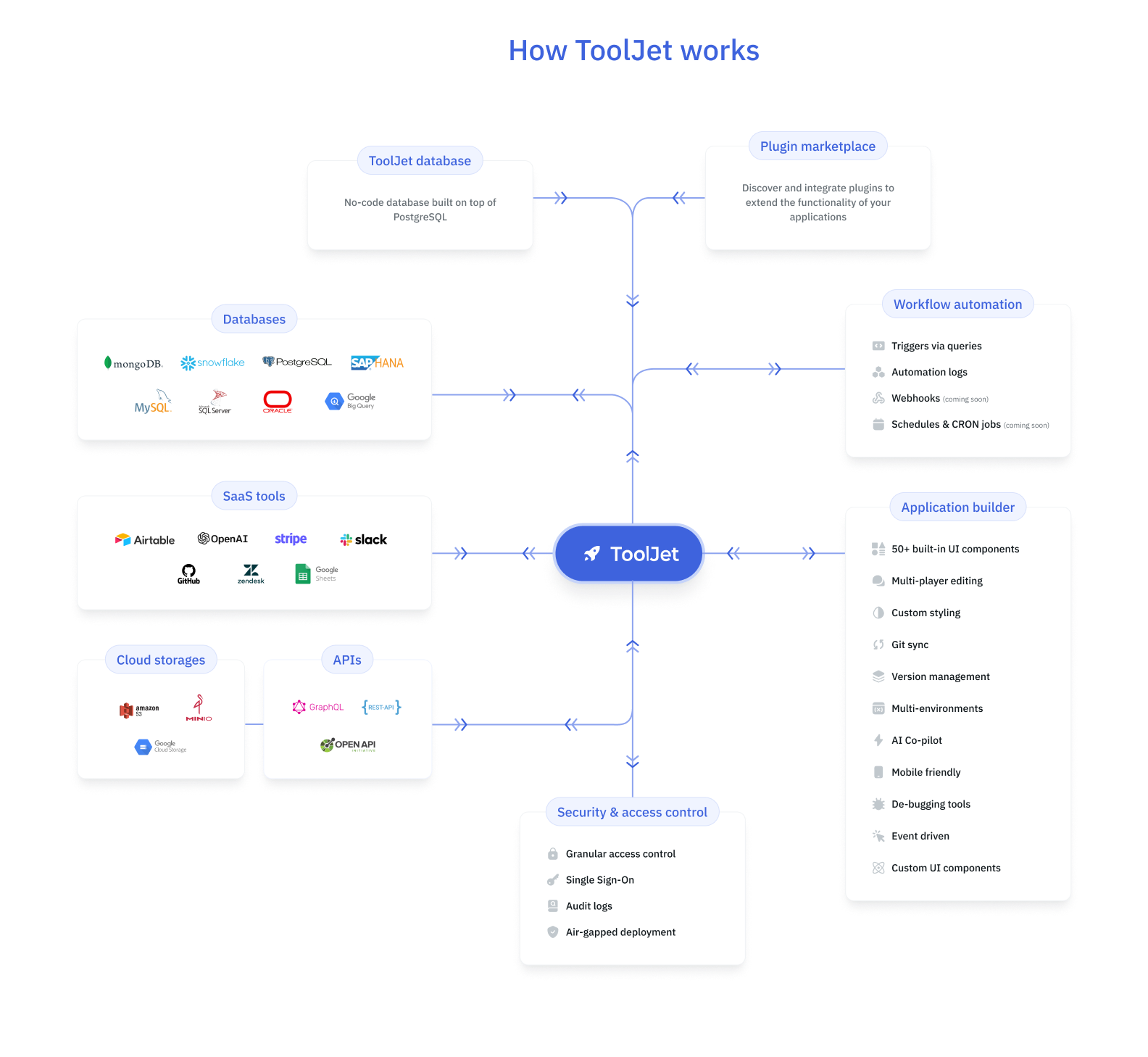
ToolJet is an open-source low-code framework for building and deploying internal tools. It features a drag-and-drop frontend builder and integration with various data sources. It also includes a visual app builder with over 45 components, a built-in no-code database, multi-page application building, multiplayer editing, and integration with over 50 data sources.
10. NocoBase
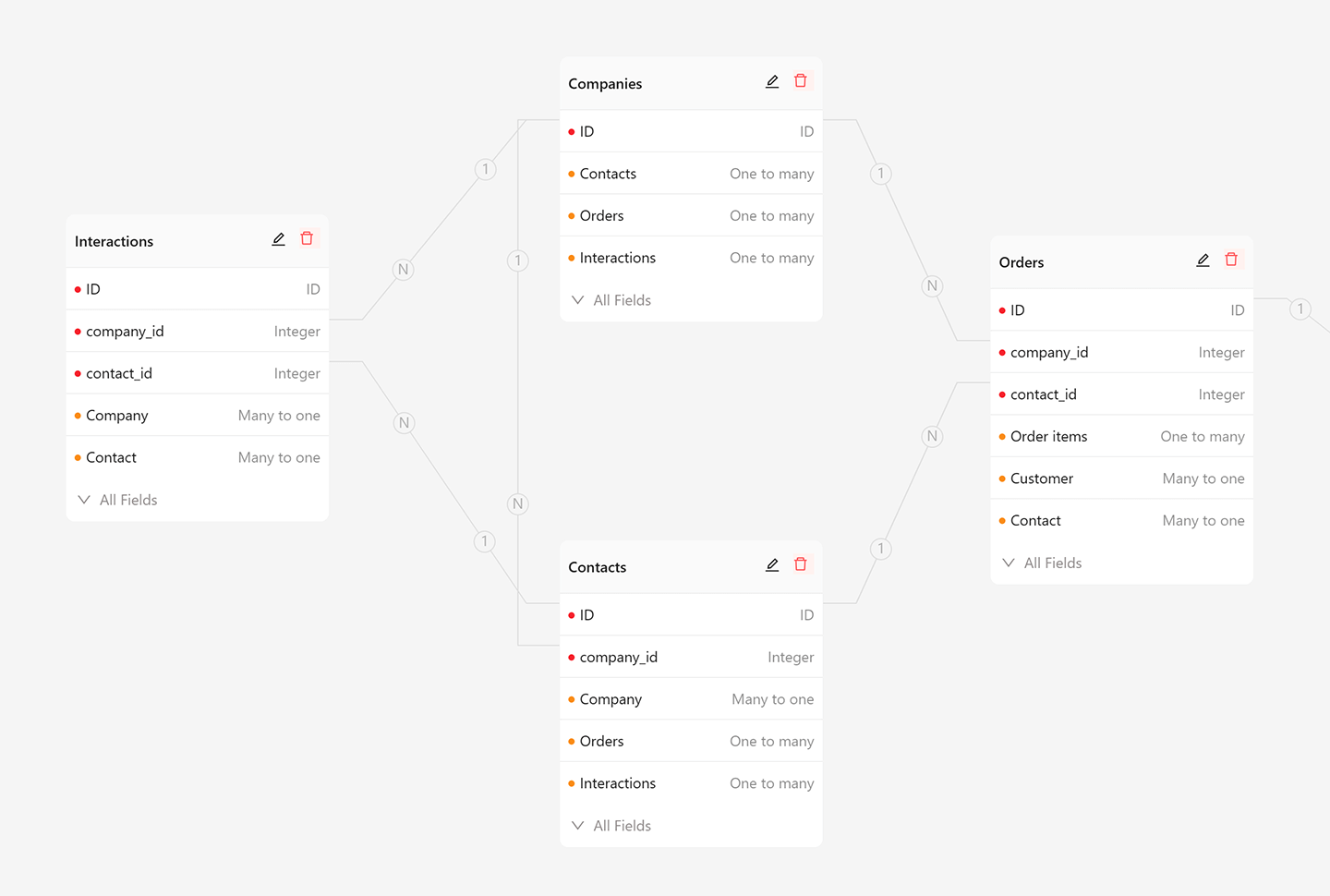
NocoBase is an open-source, no-code development platform that prioritizes scalability. It separates data structure from the user interface, allowing for creation of numerous data views with varying types, styles, content, and actions.
It offers a WYSIWYG interface for easy configuration and utilizes a plugin architecture for functional expansion. This balance between ease of use and flexibility makes it a cost-effective alternative to traditional development.
11. Appsmith
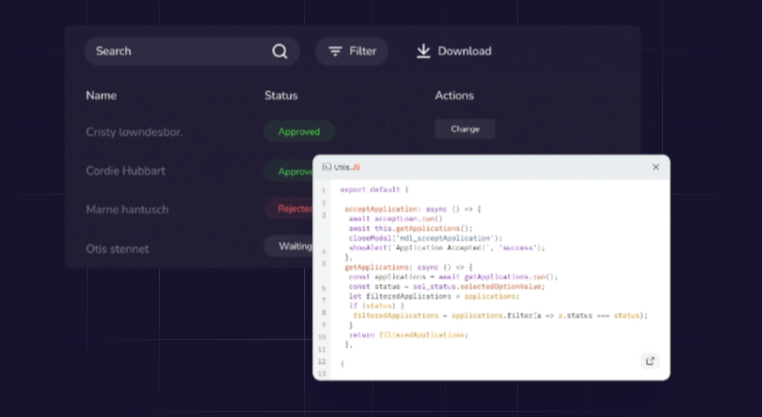
Appsmith is an open-source, low-code application platform, essential for the rapid development of internal applications such as dashboards, admin panels, approval apps, and customer support dashboards. It integrates seamlessly with over 25 databases and any API, enabling data connection within a few clicks.
Users can query their data directly using SQL or the platform's query builder. Thousands of teams use Appsmith to accelerate custom application development, deploying and managing effective software with enterprise-grade security and governance.
The tool allows developers to build, maintain, and deploy internal tools 10X faster. Ideal for startups and enterprises, Appsmith is also an excellent solution for building AI-based and IoT apps. This platform is an ideal solution for developers looking to enhance productivity and streamline their workflow.
12. APItable
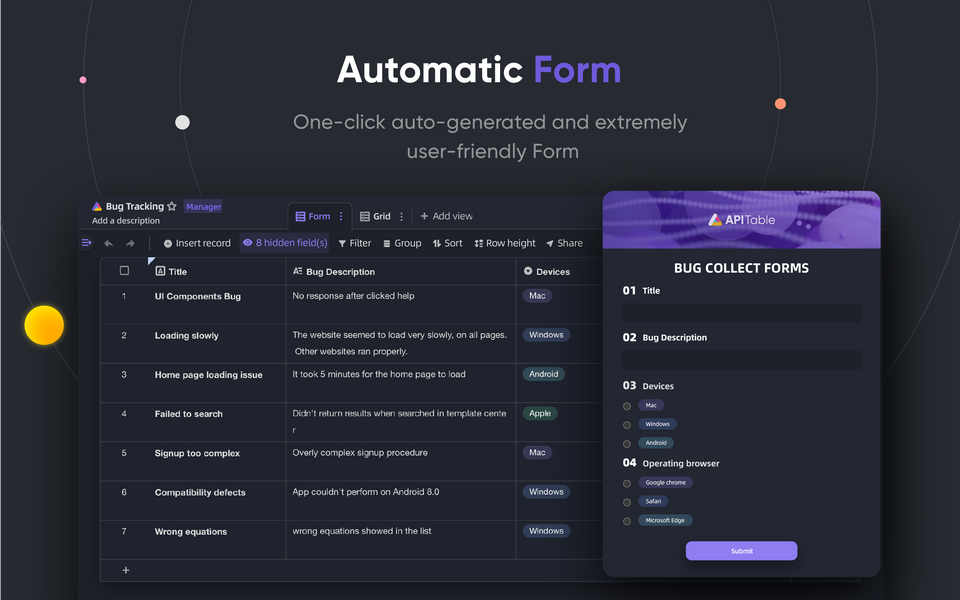
APITable is an API-oriented low-code platform superior to other Airtable open-source alternatives, designed for building collaborative apps. It offers an advanced technology stack and open-source code, enabling real-time collaboration with the Operational Transformation (OT) Algorithm. APITable's user-friendly, super-fast database-spreadsheet interface, and database-native architecture allow managing 100k+ data rows with real-time collaboration.
Full-stack API access is provided, from Data to Metadata, with support for one-direction/bi-direction table link and infinite cross-links. It uses community-friendly programming languages and frameworks, like TypeScript (NextJS + NestJS) and Java (Spring Boot). The UI supports easy CRUD operations on tables, columns, and rows, and offers seven view types, including grid, gallery, mindmap, kanban, gantt, and calendar views.
Additionally, the platform includes built-in templates, automation, a BI dashboard, a one-click auto-generated form, and multi-language support. It also integrates with n8n.io, Zapier, and Appsmith.
APITable's extensibility and features make it a highly efficient tool for building collaborative applications.
13. Structr
Structr is a low-code development and runtime environment utilizing a graph database, enabling rapid construction of enterprise web applications. It caters to both novice and experienced developers, offering simple application creation for the former and flexible, sophisticated solutions for the latter.
Structr's blend of low-code and pro-code capabilities, coupled with its graph technology, makes it an effective tool for application development and connected data use cases.
14. NocoDB
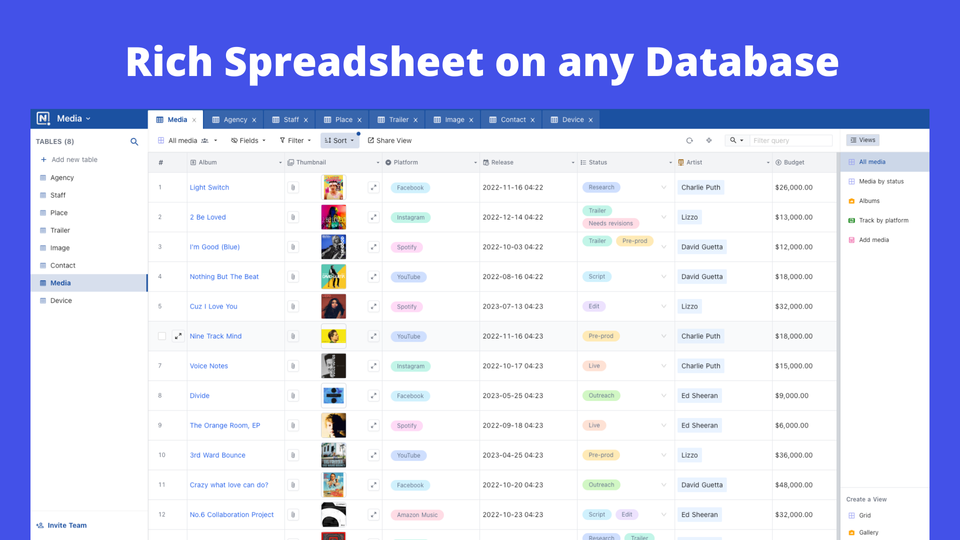
NocoDB confidently stands as a self-hosted, open-source, low and no-code powerhouse, offering a robust alternative to Airtable. It boasts of multiple installation methods, minimal server resource consumption, and support for various databases.
The user interface is intuitive and user-friendly, featuring a built-in API, team collaboration features, limitless view creation, and custom views. With a built-in asset manager and full-text search, NocoDB is set up for success. It can be deployed rapidly, making it an unbeatable choice for managing data records and establishing a managed headless system for enterprises.

15. OpenBlocks
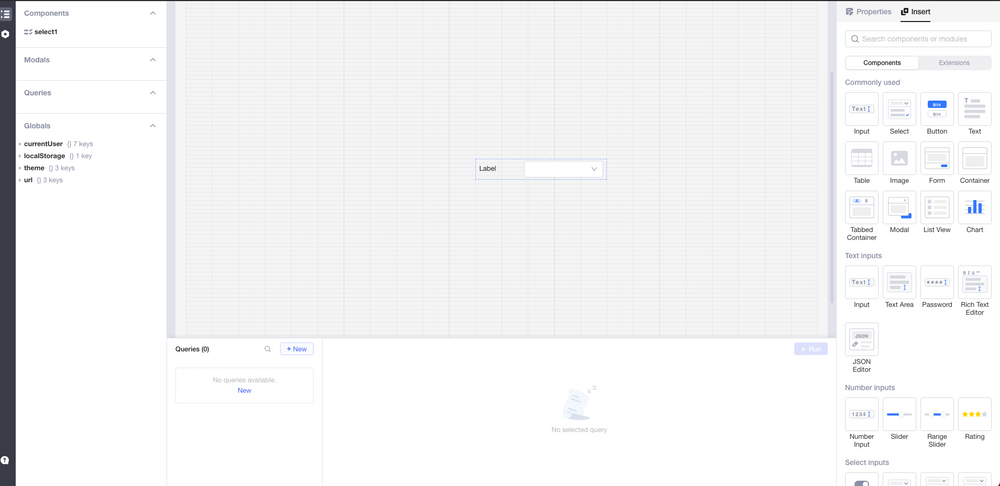
Openblocks positions itself as an open-source alternative to Retool, designed to efficiently build internal tools with no limitations. It operates as an all-in-one integrated development environment (IDE) for creating internal or customer-facing apps.
The functionality of Openblocks comprises three core steps: connecting to any data sources or APIs, building a user interface with over 50 integrated components, and sharing the resulting product with colleagues and customers.
Openblocks addresses the common challenges faced when creating an app, such as designing user interfaces, writing code in multiple languages and frameworks, and understanding the interplay of different code sections. While low-code/no-code platforms appear handy initially, they can quickly become unmaintainable and inflexible, often creating more problems than they solve. Retool-like solutions, while simple and flexible, may lack in certain aspects compared to frameworks like React/Vue.
Openblocks seeks to advance the low-code/no-code development space. It serves as a hub for creating, building, and sharing building blocks of web applications. It even introduces a domain-specific language where UI-configurable block is the first-class citizen.
Key features of Openblocks include a visual UI builder with over 50 built-in components, a module and query library for reusable components and queries in the UI builder, and custom components sharable through React and Openblocks SDK. It also offers native connections to PostgreSQL, MongoDB, MySQL, Redis, Elasticsearch, REST API, SMTP, among others, and supports JavaScript to transform data and control components. Remarkably, Openblocks pages can be embedded as a React component, offering a more integrated experience compared to iFrames.
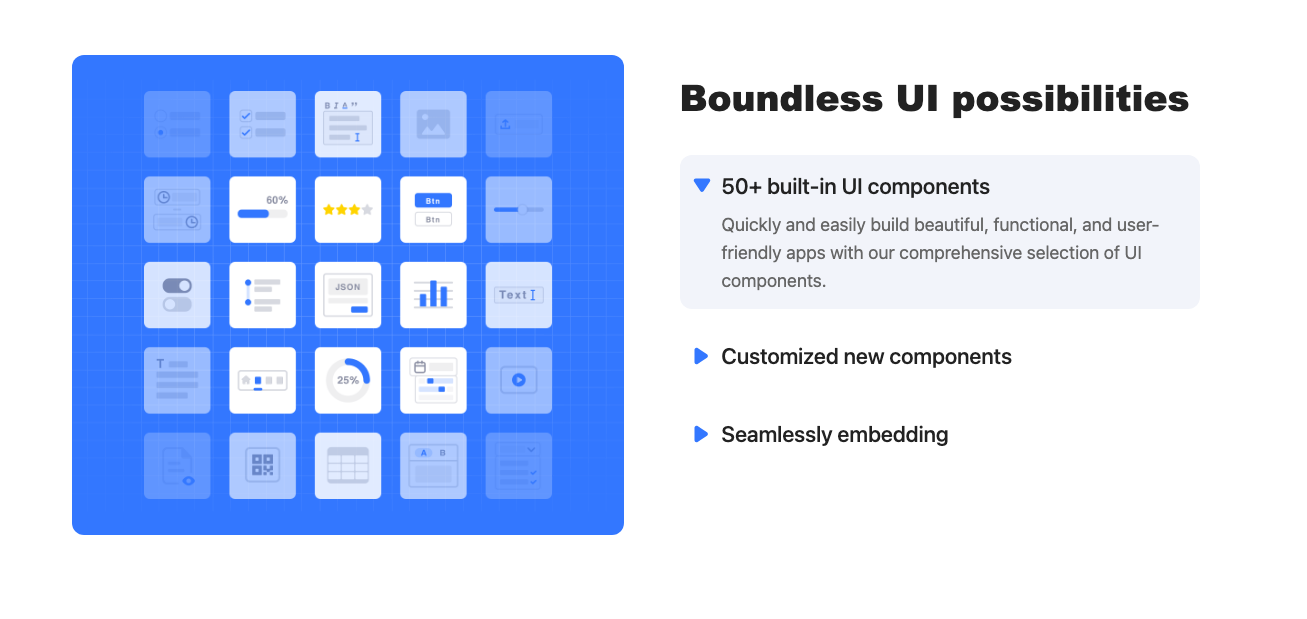
16. Open-Lowcode
Open Lowcode is a framework that allows organizations to quickly develop specific applications and scale them with a minimal budget. It is an ideal solution for enterprises to build internal tools, manage data workflows, and integrate their APIs.
17. lsFusion
lsFusion is a free, open-source low-code platform for developing information systems, featuring a single language for data, no ORM but SQL support, automatic data updates, a dynamic physical model, constraints on any data, and efficient client-server communication.
It offers a range of innovative features that improve development speed, quality, and performance, including incremental computing, function-level programming, reactive and event-based programming, and multiple inheritance and polymorphism.
18. Elemental low-code
The Elemental low-code platform stands as an exemplary, standards-based, open low-code development platform, constructed on the robust foundation of Node.js.
It proudly houses a plethora of features such as RESTful APIs defined by JSON Schema, streamlined async messaging queues, seamless integrations to external systems, a versatile API builder, an efficient rulesets builder, a user-friendly interface/website builder, a secure OIDC/OAuth2.0 Identity Provider & Identity Management system, and a reliable blob storage service.
19. Pocketbase
Pocketbase is the go-to solution for developers who need to build backend systems for their apps swiftly and efficiently. As a free, open-source, low-code offering, it's not just an option—it's the best choice. Crafted in the robust language of Go, Pocketbase is not only fast, but it's also easy to set up and impressively compact.
It boasts support for database collections with comprehensive API and SDK support for Dart and JavaScript, real-time database operations, and prototyping for flutter projects. The admin dashboard is a powerhouse, providing complete control over users, database collections, logs, system configurations, admin users, auth providers, token settings, mail settings, and file storage.

20. Baserow
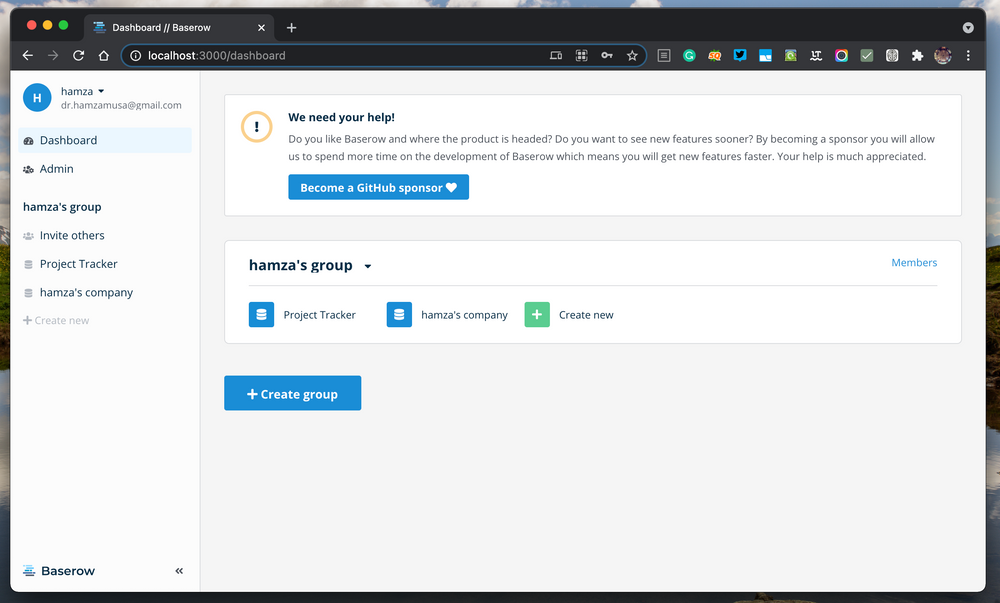
Baserow is an open-source, no-code database tool, providing a user-friendly alternative to Airtable. It enables users to create their own online databases without coding skills, combining the simplicity of a spreadsheet with powerful data organization. Baserow is easily self-hosted, removing storage restrictions, and it also offers immediate sign-up. It operates on an open-core model, with all non-premium and non-enterprise features under the MIT License, and it uses popular frameworks like Django and Vue.js.
The tool is also developer-friendly, providing a headless system for building external apps through a built-in REST API. Baserow supports the creation of multiple databases, full-text search, and sorting. It also comes with ready-to-use templates for various purposes and expects more from the user community. Its compatibility with PostgreSQL, a robust open-source database engine, makes it suitable for various uses, from enterprise to individual.
The tool is designed to be more than just a low-code or no-code platform; it is also a functional tool for building apps, with an emphasis on user data ownership and vendor lock-in prevention.
21. pRESTd
pREST is a production-ready API that provides an instant, real-time, high-performance application for PostgreSQL databases. It offers a lightweight server, direct SQL queries with customizable URLs, performance optimizations, and features for authentication and authorization.
It also allows for pluggable custom routes and middlewares, enhancing developer productivity and simplifying the process of creating secure, performant RESTful APIs.
22. Automatisch (Zapier Alternative)
Automatisch is a low-code business automation tool that connects various services to streamline business processes. It stands out for its ability to store data on users' own servers, making it ideal for businesses handling sensitive information and those adhering to GDPR.
As an open-source software (AGPL-3.0 license), it welcomes contributions from anyone and avoids vendor lock-in, allowing easy transition to other providers if necessary.
23. Graphic Walker
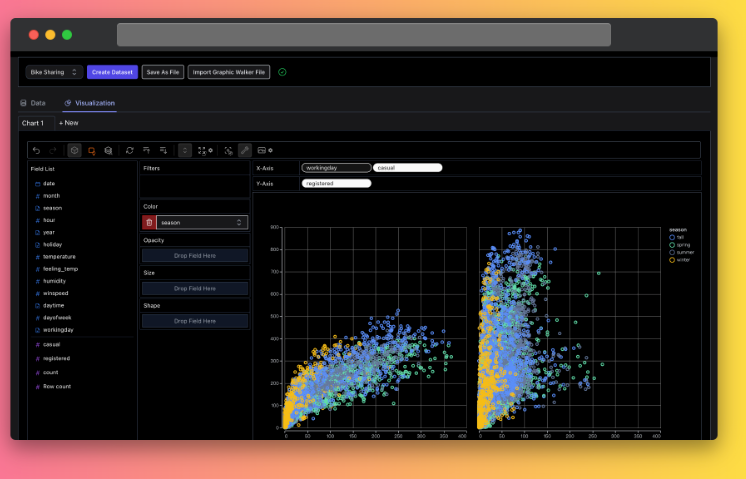
Graphic Walker is an open-source low-code alternative to Tableau, designed for easy embedding in applications as a React component. It offers user-friendly drag-and-drop interaction for data analysis, a Data Explainer for pattern analysis, computational task handling via web workers, a query interface for data queries, and supports both light and dark themes.
It also provides spatial visualization, a natural language/chat interface, and a grammar of graphics-based visual analytic user interface.
24. Instill Core
Instill Core is an open-source orchestrator for data, AI, and pipelines. It includes Instill VDP for unstructured data, AI and pipeline orchestration, Instill Model for scalable MLOps and LLMOps, and Instill Artifact for unified unstructured data management.
Instill Cloud is a fully managed public cloud service for those not interested in self-hosting. Prerequisites include macOS or Linux, Docker Engine v25 or later, and Docker Compose v2 or later.
25. Tango
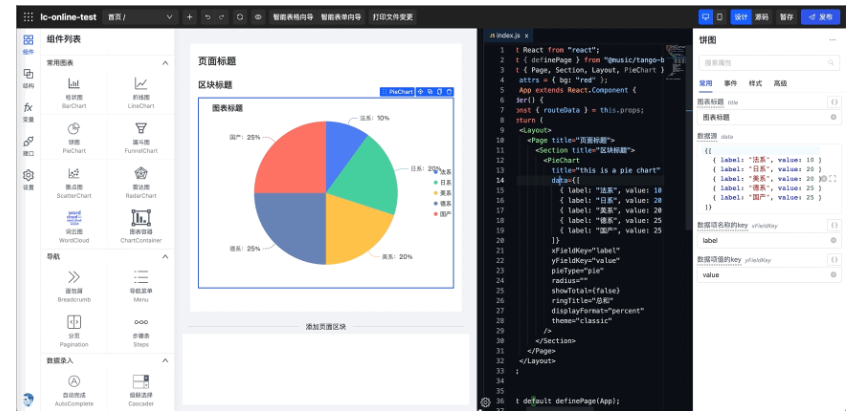
Tango LowCode Builder, a source code-based low-code platform, enhances development processes with its robustness, flexibility, and proven reliability in NetEase Cloud Music's production environment. Key features include integration with various low-code platforms and local tools, compatibility through source code AST, real-time code generation, and "source code in" and "source code out" adaptability.
The tool provides a front-end low-code designer with easy-to-use React components, type definition files through TypeScript, and comprehensive documentation for effective usage and robust coding.
26. Steedos
Steedos is an open-source alternative to Salesforce Platform, offering a low-code PaaS platform for building enterprise-grade applications. It features an intuitive drag-and-drop interface, powerful data management functions, enterprise-level security features, and flexible workflow management capabilities.
Steedos DX introduces a new way to organize metadata and distribute apps, using modern collaboration technologies like Git. It also allows seamless integration with third-party open source projects through plugins.
27. Corteza
Corteza is a low-code platform designed to allow quick construction and iteration of CRM, business process, and other structured data applications. It offers the ability to create intelligent business process workflows and establish connections with almost any data source. The platform is 100% open-source, maintained by Planet Crust and its founders, offering flexibility, freedom, and control to its users.
Key features of Corteza include a standards-oriented approach that utilizes well-established data formats, technologies, and design decisions. It offers flexible security features, including a flattened RBAC facility, enabling organizations to apply complex internal security policies.
Additionally, Corteza comes with extensive privacy features, which allow organizations to configure the platform to comply with data privacy regulations in various regions. This makes Corteza a reliable and adaptable choice for businesses looking to optimize their processes with a modern, open-source solution.
28. Obsei
Obsei is an open-source, AI-driven automation tool that enhances data collection, analysis, and distribution. It has three components: the Observer, which gathers unstructured data from numerous sources; the Analyzer, which uses AI for tasks like classification and sentiment analysis; and the Informer, which sends analyzed data to different platforms for further processing.
Obsei can store states in various databases, making it ideal for scheduled jobs or serverless applications. Future plans include expanding data collection from diverse channels, integrating more workflows, and focusing on different data formats like text, image, and audio.
Obsei's applications include social listening, alerting, automatic issue creation and tagging based on customer complaints, deep insight extraction from feedback, market research, and dataset creation for AI tasks. Essentially, it's a versatile tool for data management and analysis.
29. LowCodeEngine
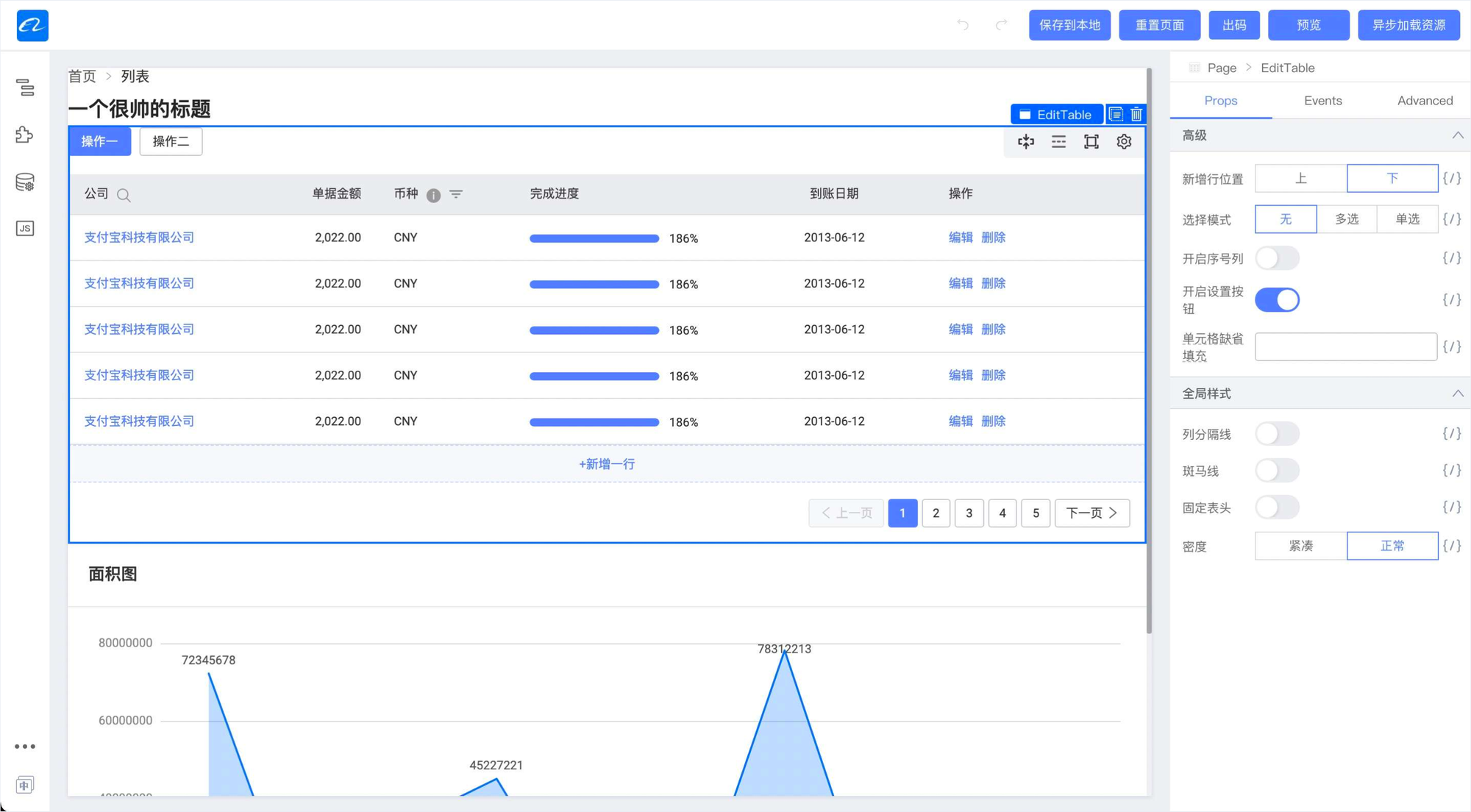
LowCodeEngine is an enterprise-class low-code technology stack with an extension-oriented kernel engine. It includes high-quality ecological elements, a complete tool chain, and powerful expansion capabilities.
It supports the full R&D cycle of ecological elements and has supported nearly 100 various vertical low-code platforms. The engine is developed with TypeScript, providing complete type definition files.
30. Supervision
This is a free, open-source, low-code tool for computer vision. It can be adapted for any computer vision task or used as a foundation for quickly developing feature-rich computer vision applications. It is written in Python and can be effortlessly installed and used by experienced developers.
31. Amplication
Amplication is an open-source development platform that automates backend application development for .NET and Node.js. It provides a low-code user-friendly interface for integrating APIs, data models, databases, and authentication.
The platform supports team-oriented development and allows customization of code and integrations. It enables developers to focus on business logic while handling the heavy lifting of application development.
32. Windmill
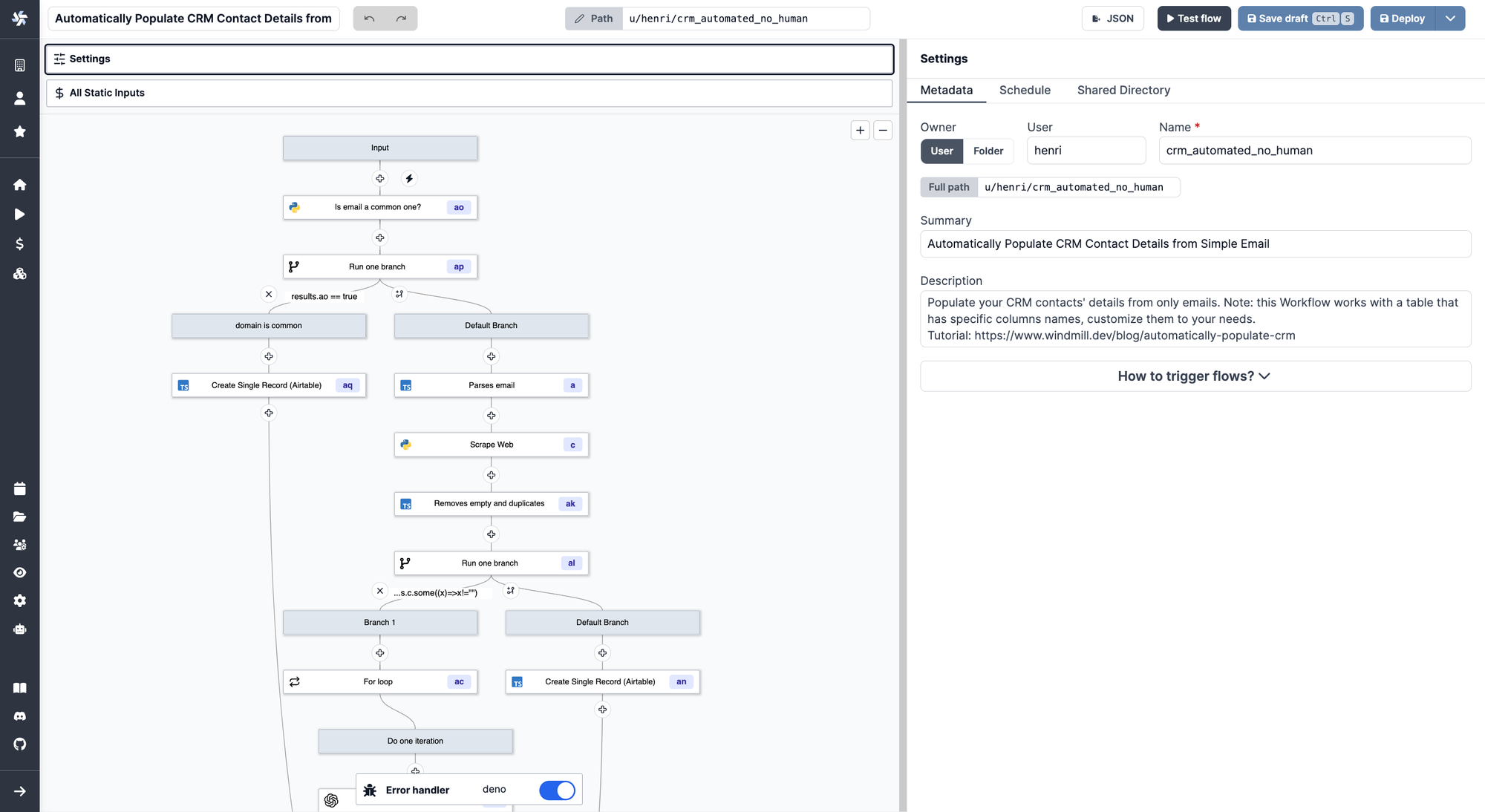
Windmill is an open-source developer platform designed for internal tools, including APIs, background jobs, workflows, and user interfaces. This platform serves as a self-hostable alternative to other developer tools such as Airplane, Pipedream, and Superblocks. It offers a simplified version of Temporal, complete with autogenerated UIs and custom UIs to trigger workflows and scripts as internal apps.
One of the standout features of Windmill is that it automatically turns scripts into shareable user interfaces. These scripts can then be composed together into flows or used in richer apps built with low-code. This makes Windmill a flexible and adaptable tool for developers.
Windmill supports a variety of script languages, including Python, TypeScript, Go, Bash, SQL, and GraphQL. This broad range of supported languages ensures that developers can use their preferred scripting language, enhancing productivity and efficiency.
Windmill features a command-line interface app, generators, and webhook support, offering a variety of ways to interact with the platform. Moreover, it allows users to build custom workflow user interfaces and create many workers to automate business processes. This versatility makes Windmill an excellent tool for developers looking to streamline their workflow and improve their automation processes.
33. YAO App Engine
YAO, an open-source application engine written in Golang, is ideal for developing business systems, website/APP APIs, admin panels, and self-built low-code platforms. It uses a flow-based programming model and YAO DSL or JavaScript for function implementation.
YAO allows developers to create web services and is highly efficient and versatile, outperforming PHP and JAVA in terms of reusability, coding efficiency, application performance, and resource ratio.
It also includes a built-in data management system that can realize 90% of common interface interaction functions, making it suitable for quickly creating various enterprise systems.
24. Kestra
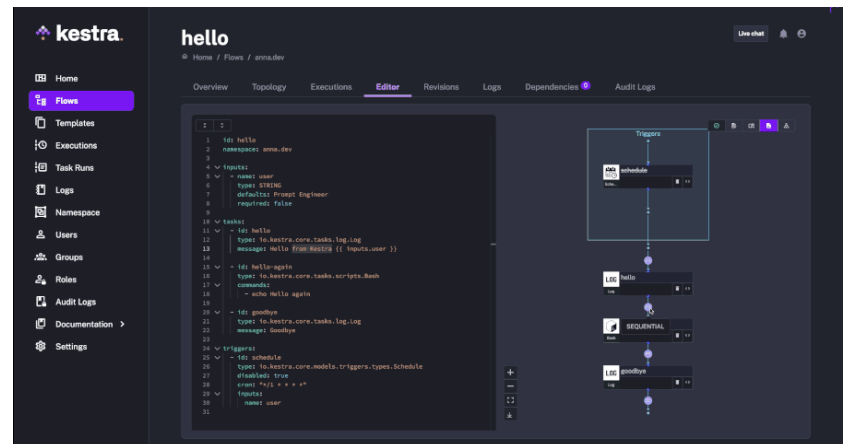
Kestra is an open-source orchestrator that simplifies scheduled and event-driven workflows. It uses Infrastructure as Code practices for data, process, and microservice orchestration. Kestra allows for easy flow creation with a declarative YAML interface and offers a set of language-agnostic developer tools.
Its key components include Flows, Namespaces, Tasks, Triggers, and Inputs. Changes to a workflow are automatically adjusted in the YAML definition, ensuring the orchestration logic is always managed declaratively.
35. Saltcorn
Saltcorn is an unrivalled, extendable open-source no-code database application builder. Harness its power to craft web applications based on relational data, with adaptable views, datatypes, and layouts.
Experience the freedom and open-source prowess of our no-code application builder.












